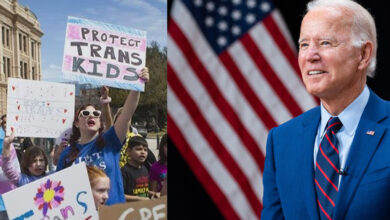Albania Bans TikTok for One Year Over Claims of Promoting Violence and Bullying

Decisive move to curb social media’s influence on youth behavior, Albania has announced a one-year ban on the popular video-sharing platform TikTok, effective starting early next year. Prime Minister Edi Rama made the announcement following the tragic stabbing of a 14-year-old schoolboy last month, an incident that has sparked a broader debate on the impact of social media on children.
The ban was formalized after Rama held over 1,300 meetings with teachers, parents, and psychologists across the nation to discuss the role of social media in fostering negative behaviors among the youth. “For one year, we’ll be completely shutting it down for everyone. There will be no TikTok in Albania,” stated Rama during a public address, emphasizing the government’s intention to protect the country’s children from what he described as “a thug in our neighborhood.”
The decision comes in the wake of a violent altercation that began online, leading to the death of a teenager in mid-November. The incident reportedly involved a dispute that escalated from social media interactions, drawing significant public and governmental scrutiny to platforms like TikTok. The Albanian government has accused the app of fueling violence and bullying, particularly among children, who are the largest demographic of TikTok users in the country according to domestic research.
TikTok, owned by the Chinese company ByteDance, has contested these claims. In a statement to various news outlets, a TikTok spokesperson called for “urgent clarity from the Albanian government” regarding the specifics of the case, asserting that there was “no evidence that the perpetrator or victim had TikTok accounts.” Furthermore, the company clarified that videos related to the incident were actually posted on another platform, not TikTok.
Prime Minister Rama has been vocal about the differences in how TikTok operates inside and outside China, highlighting that while the app promotes educational content in China, its international version often propagates what he termed “scum and mud.” He argued that Albania, as a smaller nation, does not possess the leverage to alter TikTok’s algorithm to suppress the spread of harmful content.
This ban aligns with a series of protective measures introduced by Albanian authorities, including increased police presence in schools, educational training programs, and enhanced cooperation with parents to tackle the broader issues of social media’s impact on young people. Rama also mentioned that the government would monitor the global response to this ban and the actions of TikTok, which could influence whether the ban will be lifted after its term.
The decision has sparked mixed reactions both domestically and internationally. Critics, including members of Albania’s opposition, have labeled the move as an infringement on freedom of speech and democratic rights, viewing it as an electoral maneuver by the government. Meanwhile, some posts on X have shown support for the ban, reflecting a sentiment that social media platforms need tighter control to protect youth from negative influences.
As Albania takes this unprecedented step, the global community watches closely, pondering the implications for social media regulation, the balance between freedom and safety online, and how other nations might respond to similar concerns about social media’s influence on their populations.




